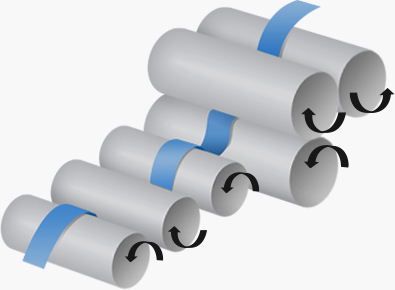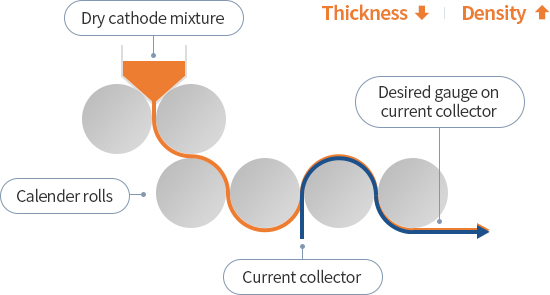이차전지 재료
Binder
CNP Solutions has differentiated conductive polymer synthesis and binder fabrication technology.
-
Conventional Binders

-
CNPS Binders

-

Conductivity
Using an electrically conductive polymers, electrode active material particles are designed to be connected through the polymeric binder even when the gap between the particles becomes longer larger.
The electrically conductive polymer binder provides excellent electrical connection between active material particles, resulting in an excellent electrical conduction through electrode layer. -

Binding property
Binder molecules are designed to reduce dimensional change during charging and discharging processes
-

Adhesive property
Excellent adhesion of electrodes to current collector
CNP SOLUTIONS Binders
CNP Solution developed 2 types of binder systems – for wet and dry systems– both improve adhesion between active materials,
ease of processing and increased electrical conductivity, enabling battery performance such as improved capacity retention and fast charging.
The dry-system without solvents surely contributes to the reduction of carbon footprint.
Binder for Wet-system
CNP Solutions’ wet binder system maximizes integration between active material particles,
hence improving adhesion and electrical conductivity.
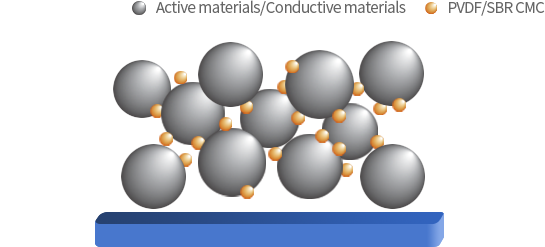
- Conventional Binders
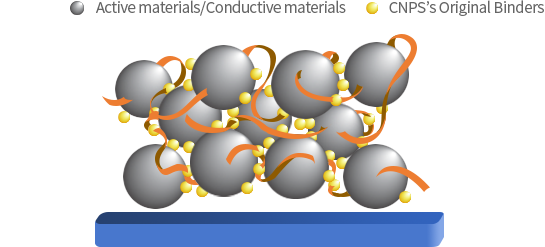
- CNPS’s Original Wet Binders

Binders for wet process Advantages
-

Excellent electrochemical
stability -

Excellent electrical
conductivity -

Excellent capacity
retention (Long-cycle Life)
Binders for Dry-system
The CNP Solutions dry binder system is specially designed for lithium-ion battery dry-process and solid-state battery with excellent binding strength, adhesive force and capacity retention.
Binder Performance
Excellent capacity retention compared to reference
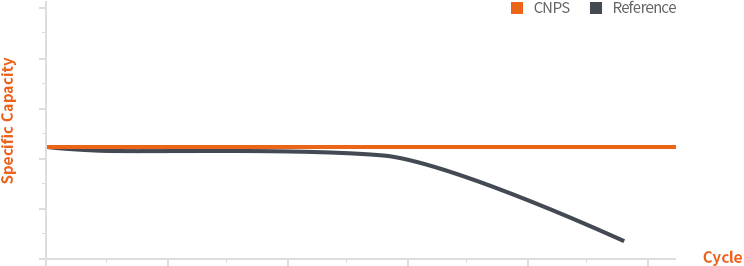

Binders for dry process Advantages
-

Achieve Zero-carbon
process -

Cost saving by
simplified manufacturing
process -

Improved processability
-

Improved binding performance


